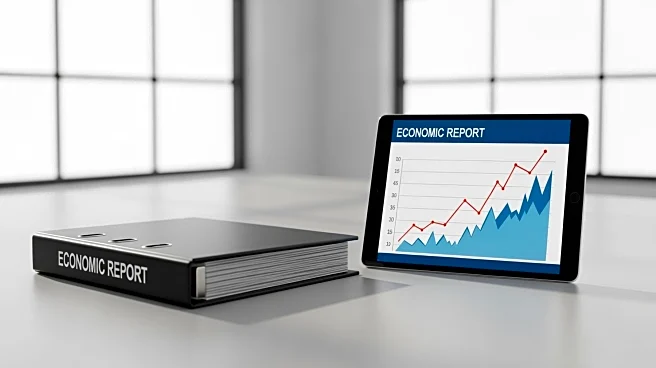What's Happening?
The Conference Board has projected a slowdown in U.S. economic growth, with GDP expected to grow by 1.5% in 2026, down from 1.8% in 2025 and 2.4% in 2024. Despite this forecast, consumer confidence is beginning to recover after a slump earlier in the
year. The rebound in confidence follows concerns over tariffs and their impact on the economy. However, confidence levels have not yet returned to the highs seen in November 2024. The Conference Board's analysis indicates that lower-income Americans and young adults are facing challenges in the job market, with political affiliation influencing consumer confidence levels. Republicans maintain high confidence, while independents show improvement and Democrats exhibit weakening confidence.
Why It's Important?
The projected slowdown in economic growth and the recovery in consumer confidence have significant implications for U.S. industries and public policy. A softer economic growth rate could impact business investments and hiring decisions, potentially leading to a cautious approach by companies. The recovery in consumer confidence, although not complete, suggests a potential increase in consumer spending, which could benefit sectors like retail and services. However, the political divide in confidence levels may influence policy decisions and economic strategies, as differing perceptions of economic conditions could affect legislative priorities and public support for economic measures.
What's Next?
The Conference Board's forecast suggests a need for strategic adjustments by businesses and policymakers to navigate the anticipated economic conditions. Companies may need to focus on efficiency and innovation to maintain competitiveness in a slower growth environment. Policymakers might consider measures to support consumer spending and address employment challenges faced by lower-income groups and young adults. Monitoring consumer confidence trends and political influences will be crucial in shaping future economic policies and strategies.
Beyond the Headlines
The political influence on consumer confidence highlights the broader societal implications of economic perceptions. The divide in confidence levels based on political affiliation underscores the role of political narratives in shaping public sentiment and economic outlook. This dynamic could lead to increased polarization in economic policy debates and affect the implementation of measures aimed at boosting economic growth and stability.

















